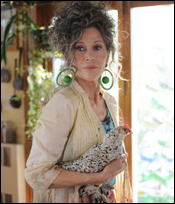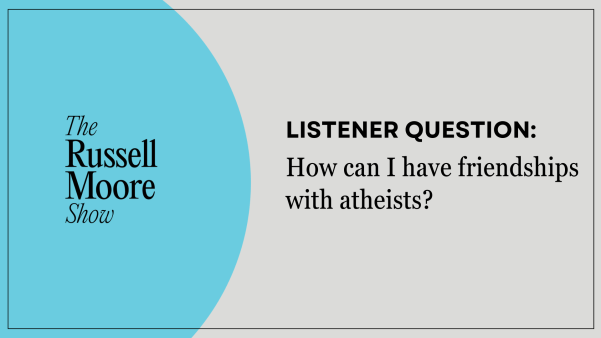Sometimes it’s clear from the get-go that a movie was made mostly for the benefit of those involved. Let’s face it: some movies are just more fun to make than others. For instance, shooting a film about the Holocaust or sex trafficking, while meaningful, likely isn’t a lighthearted experience.
Then there are films like Peace, Love and Misunderstanding, a sunny romp in present-day Woodstock, New York. This movie sports a pretty cast and a solid (if unoriginal) premise: parents unintentionally screw up their kids, and it’s up to said children to let go of their resentment so that they can fly away like a balloon or a bird on the wing.
But a clichéd premise is perhaps forgivable. After all, this film is set in Woodstock, where a great deal of the residents still (apparently) live in 1969. The not-coincidentally-named Grace (Fonda) acts as a nurturing, grandmotherly figure to a number of them, throwing parties, reminiscing about the good days, and even leading the weekly protests on the town square to remind the government that they haven’t become complacent. Grace’s uptight daughter Diane (Keener) broke with her mother twenty years ago, and has since become a Manhattan lawyer, raised two teenagers, and become a Reagan-loving conservative. But when Diane’s husband (Kyle McLachlan, taking a break from his recent stint on Portlandia) shocks her with a request for a divorce, Diane packs up the kids—Jake (Wolff) and Zoe (Olsen)—and heads north to mama. And Woodstock.

The simple move doesn’t solve their problems. Not quite, anyhow. They each quickly encounter their perfect romantic match—including a handsome woodworker / songwriter, Jude (Morgan) for Diane and the sexy-and-sensitive butcher Cole (Crawford) for Zoe. The course of true love never runs smooth, etc., but along the way everyone learns some valuable lessons, and Jake makes a film about violence and love.
If you’re beginning to yawn, that could be understandable. This is not exactly “barn-burning” stuff—which is surprising. Director Bruce Beresford has had a long, often luminous career. He’s directed some of the best, including Jessica Tandy, Morgan Freeman, and Dan Akroyd in their Oscar-nominated roles in Driving Miss Daisy (which also won Best Picture in 1989). This film is also loaded with talent—notably, the relative newcomer Olsen (Martha Marcy May Marlene)—and with such a strong cast, the film is at least fun to watch.
Fun, if you don’t mind the pot-smoking, the platitudes, the uncritical glorification of Grace’s lifestyle and uncritical condemnation of Diane’s, the predictable characters and their occasionally unbelievable actions (it’s hard to believe that straight-laced Diane would suddenly flee to her estranged mother, when she needs comfort). All these things could work (stereotypes do exist for a reason), but the film quickly becomes too predictable. Sure, Diane needs to forgive her mother, accept her for who she is, and let go. Yes, it’s often in encountering our roots that we find our identity. But these things don’t come easily, and usually there’s fault on both sides of a relationship like Grace and Diane’s. Reducing this truth hamstrings the story’s potential to explore real reconciliation.

With this said, this film will likely land for those who pine once more for the Woodstock era. The scenery is lovely, the music is fun, the romances are enjoyable, the consequences are few. Everyone ends up happy. But I suspect that to a younger generation, too jaded and ironic to think the sixties were as romantic as the film presents, Peace, Love and Misunderstanding may seem full of peace, and maybe even love—but they will encounter a lot of misunderstanding.
Talk About It
Discussion starters- Diane fled her upbringing in order to pursue a life that seems diametrically opposed to her roots—yet she ultimately finds healing by embracing the way she was raised. Have you ever rejected something you were taught as a child, only to discover that it was right after all? How did you deal with that experience?
- The film points to the fighting and violence in the world, and says that the solution is love. How does this correspond with the definition of love given in 1 Corinthians 13? Would you add anything?
- Grace’s name points to the idea that she is the grace-filled character in the film. In which ways does she show grace to her daughter in the face of Diane’s disdain and anger?
The Family Corner
For parents to considerYou probably guessed it: there is a lot of pot in this film, being smoked in a variety of ways (sometimes by teenagers) and grown, though without any adverse effects aside from a severe case of the munchies. There’s also a fair bit of drinking (not by teenagers) and a smattering of profanities. Several characters have sex, though we don’t see anything; two characters swim naked; we see two nude male backsides. Sexual activity (teenage, grandmotherly, and otherwise) is also hinted at.
Photos © IFC Films
© 2012 Christianity Today. All rights reserved. Click for reprint information.









